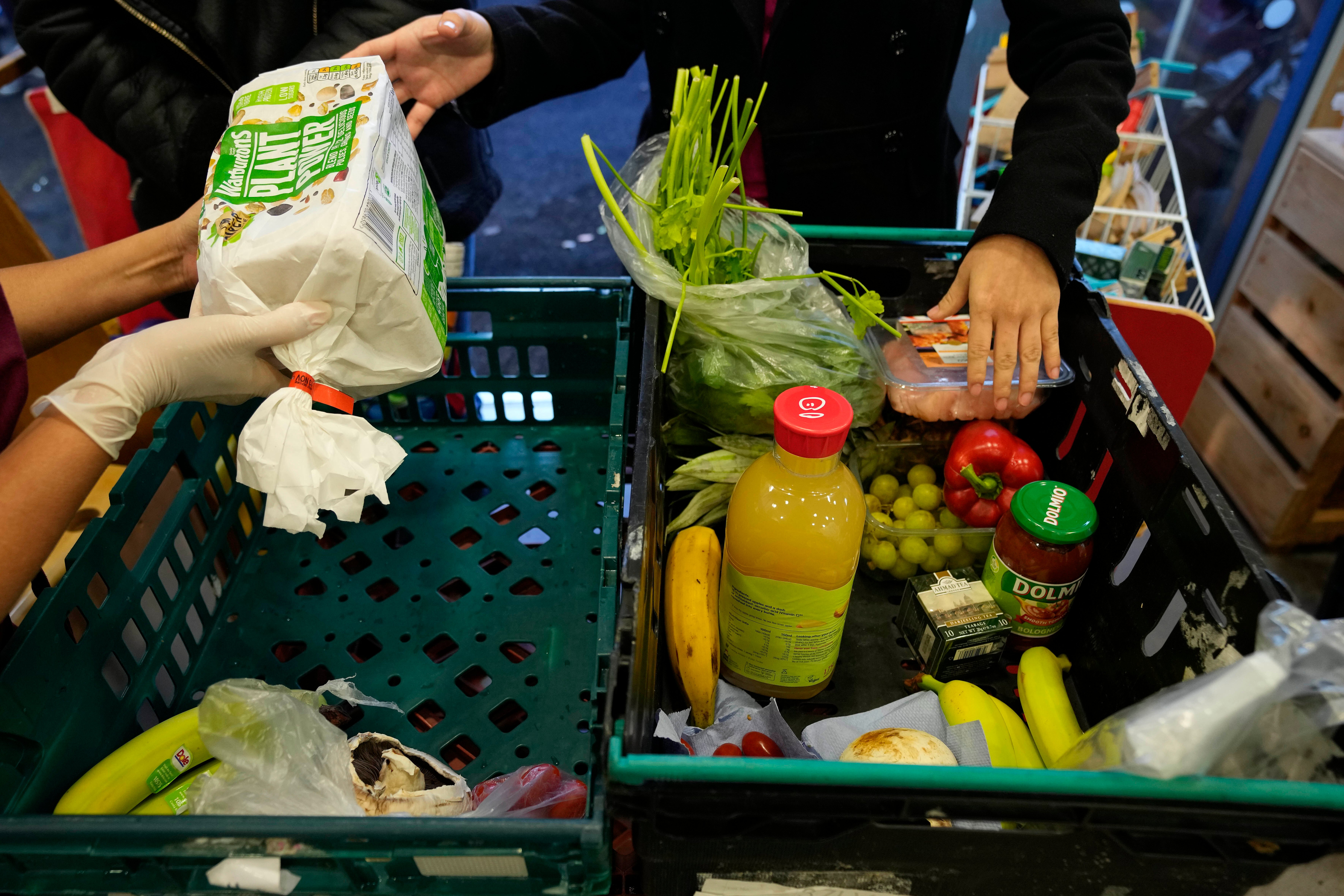Cost of living crisis putting women ‘at risk of harm, destitution or death’
Frontline workers at refuges for domestic abuse victims forced to use own money to help women - including those who have gone without food for days

The cost of living crisis is putting women in the UK “at risk of harm, destitution or death”, campaigners have warned.
A damning statement, signed by 80 organisations, said spiralling living costs are having “devastating” repercussions on women due to placing them at “greater risk of violence and abuse”.
Campaigners, who are demanding the government take urgent measures, warned frontline workers at refuges for domestic abuse victims are being forced to use their own money to help women - including those who have gone without food for days.
Frontline organisations like refuges, which house many women at risk of murder if they remain at home with their partner, are said to be grappling with soaring bills while “demand for support to escape abuse” is rising.
Leading organisations in the women’s sector warned the cost of living crisis is having a disproportionate effect on all women but is hitting abuse victims hardest - noting women are forced to make the "unthinkable choice” of remaining trapped with an abuser or being left destitute if they manage to flee.
Baljit Banga, executive director of Imkaan, an umbrella organisation dedicated to addressing violence against black and minority ethnic women, said: “Economic justice is part of social justice and the constant struggle towards equality in our society.
“In the current economic crisis the lives of all women must be acknowledged and a comprehensive response must ensure equal participation, contribution and the fulfilment of life.
“The response must centre on the lives and material realities of those women who permanently occupy the margins due to intersectional oppression.”
Campaigners argued the most impoverished women will bear the brunt of the cost of living crisis as they are hardest hit by “cuts to social security and public services”.
“Despite being the ‘shock absorbers of poverty’, managing household budgets and families who rely on them, women have lower levels of savings and wealth than men and are more likely to be in debt,” the organisations warned. “Women take on the majority of unpaid labour and are more likely to be in insecure employment”.
They noted this is especially true for Black and minoritised women due to them being more likely to live in poverty - with migrant women hardest hit.
Andrea Simon, director of the End Violence Against Women Coalition (EVAW), said the “cost of living crisis is exacerbated by the rising cost of energy” but noted “it did not emerge overnight”.
She added: “As with the Covid-19 pandemic, many of the risks to women experiencing abuse could have been foreseen and prevented.
“The situation we find ourselves in is the result of 12 years of austerity policies that have hit the poorest hardest, widened inequality and hammered public services and specialist women’s organisations supporting victims and survivors of male violence.”
Ms Simon said the “funding crisis” the women’s sector is grappling with is by no means a new issue but warned the coronavirus crisis coupled with the “latest round of economic shocks is especially dangerous for women”.
She added: “Frontline services cannot keep plugging every gap created by government cuts to statutory services and social security, whilst facing funding cuts themselves.”
The organisations in England and Wales are demanding the government to establish an Emergency Fund for charities to provide help for women and children enduring male violence and stop “the risk of death or destitution” - with migrant women and those with no recourse to public funds included in this support.
The situation we find ourselves in is the result of 12 years of austerity policies that have hit the poorest hardest, widened inequality and hammered public services and specialist women’s organisations supporting victims and survivors of male violence.
Among other demands, the frontline services are also calling for benefits to be urgently raised so they tally with soaring inflation and energy bills.
Farah Nazeer, chief executive of Women’s Aid Federation of England, the UK’s largest domestic abuse charity, said: “The rising cost of living is having an unprecedented impact on women and children experiencing domestic abuse and the life-saving services they need.
“Without action now, we fear frontline services will risk going under, and many women will be forced to stay with an abuser, even when their lives are at risk. We urge the prime minister and chancellor to protect women, fund the organisations they need and tackle the inequalities that mean they are at the sharpest edge of this crisis.”
Between two and three women are murdered each week by their partners or ex-partners in England and Wales.
Jo Todd, chief executive of Respect, a leading domestic abuse charity which helps deliver perpetrator programmes, said: “We know that financial concerns can lead to increased tension and arguments in the home, creating a context where abuse can become more severe or frequent.”
While Jayne Butler, chief executive of Rape Crisis England & Wales, said rape and sexual violence victims can go on to endure a “wide range of severe, long-term, even lifelong, impacts” as she warned “access to specialist support” can play a key role in the “healing” process.
Sara Kirkpatrick, chief executive of Welsh Women’s Aid, added: “It is unacceptable to normalise a culture where the most vulnerable have nowhere to turn.”








Join our commenting forum
Join thought-provoking conversations, follow other Independent readers and see their replies
Comments